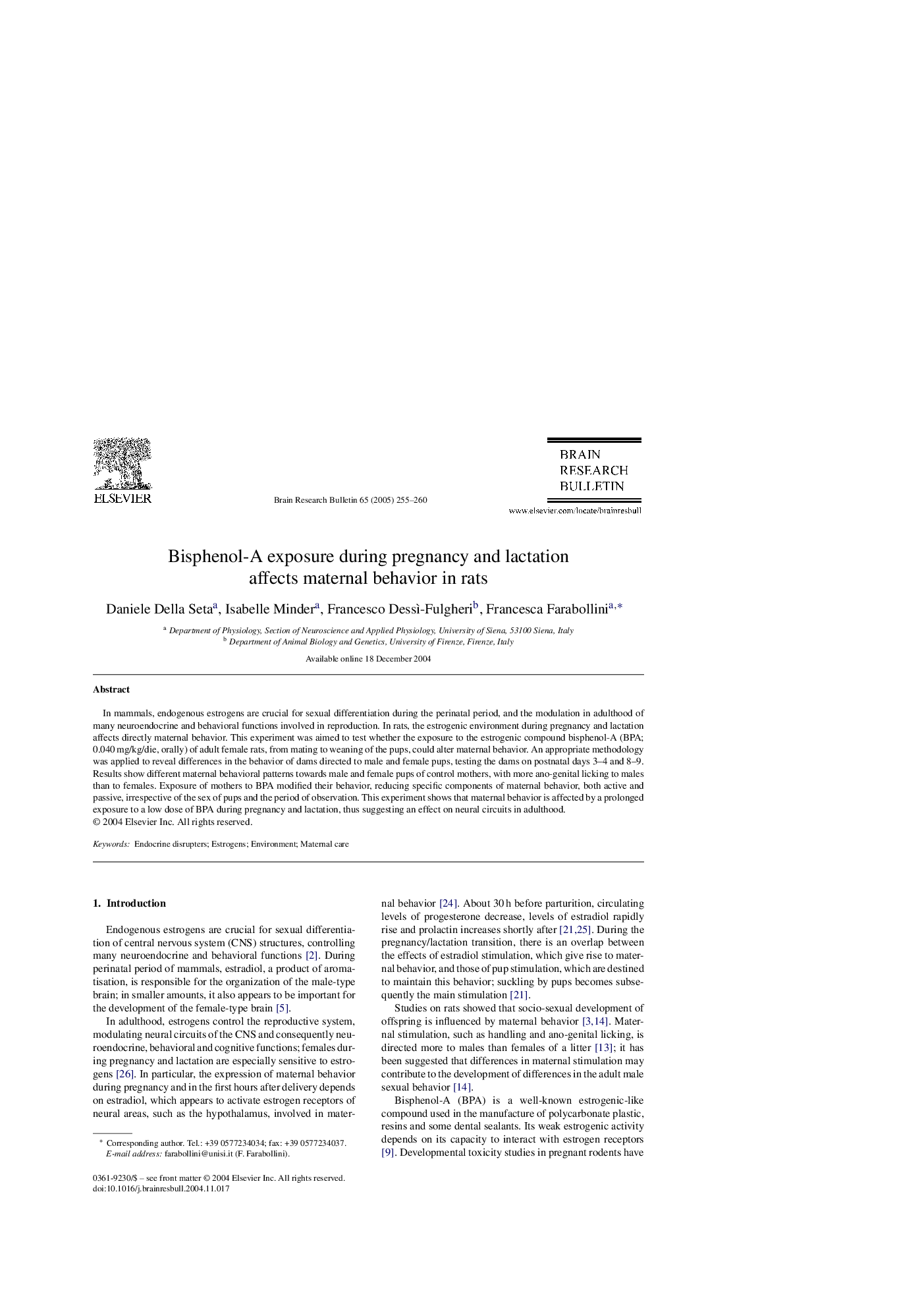| Article ID | Journal | Published Year | Pages | File Type |
|---|---|---|---|---|
| 9409477 | Brain Research Bulletin | 2005 | 6 Pages |
Abstract
In mammals, endogenous estrogens are crucial for sexual differentiation during the perinatal period, and the modulation in adulthood of many neuroendocrine and behavioral functions involved in reproduction. In rats, the estrogenic environment during pregnancy and lactation affects directly maternal behavior. This experiment was aimed to test whether the exposure to the estrogenic compound bisphenol-A (BPA; 0.040Â mg/kg/die, orally) of adult female rats, from mating to weaning of the pups, could alter maternal behavior. An appropriate methodology was applied to reveal differences in the behavior of dams directed to male and female pups, testing the dams on postnatal days 3-4 and 8-9. Results show different maternal behavioral patterns towards male and female pups of control mothers, with more ano-genital licking to males than to females. Exposure of mothers to BPA modified their behavior, reducing specific components of maternal behavior, both active and passive, irrespective of the sex of pups and the period of observation. This experiment shows that maternal behavior is affected by a prolonged exposure to a low dose of BPA during pregnancy and lactation, thus suggesting an effect on neural circuits in adulthood.
Related Topics
Life Sciences
Neuroscience
Cellular and Molecular Neuroscience
Authors
Daniele Della Seta, Isabelle Minder, Francesco Dessì-Fulgheri, Francesca Farabollini,
